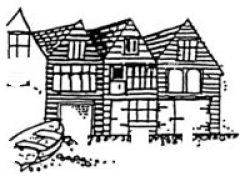The committee wish all members a safe and happy New Year.
With the continuing Covid restrictions we’ll be unable to resume Open Meetings, including our AGM, at the Castle for the foreseeable future.
You may recall from our Autumn Newsletter our intention to trial a members’ on-line Zoom meeting on Wed 20th January. Unfortunately we find that this would clash with another local important event so have rescheduled ours to Wed 27th January, with log-in from 7.00pm for a 7.15pm start.
We will email a Zoom meeting link and joining instructions nearer the time. (You do not need to preload the Zoom application).
The main aim is Zoom set-up and familiarisation for interested members well in advance of our (required) AGM which we’ll be holding a little later this year on 24th March via Zoom.
We’ve been unable to engage a speaker for the 20th January but the committee will give updates for discussion on some current activities including:
- Glebe Way railway crossing inquiry status.
- Whitstable to Iwade section of the national Coastal Path.
- The new Whitstable Town Forum.
- AGM topics, including a brief overview of reasons to change the WS to a Charitable Incorporated Organisation.
It will be helpful if those interested in joining this initial Zoom meeting will advise same by return email so we can determine roughly how many participants to expect.
Please note also that WS Membership annual renewal subscriptions will become due on 1st March 2021.
Richard Amos, Secretary and Membership Secretary, The Whitstable Society
